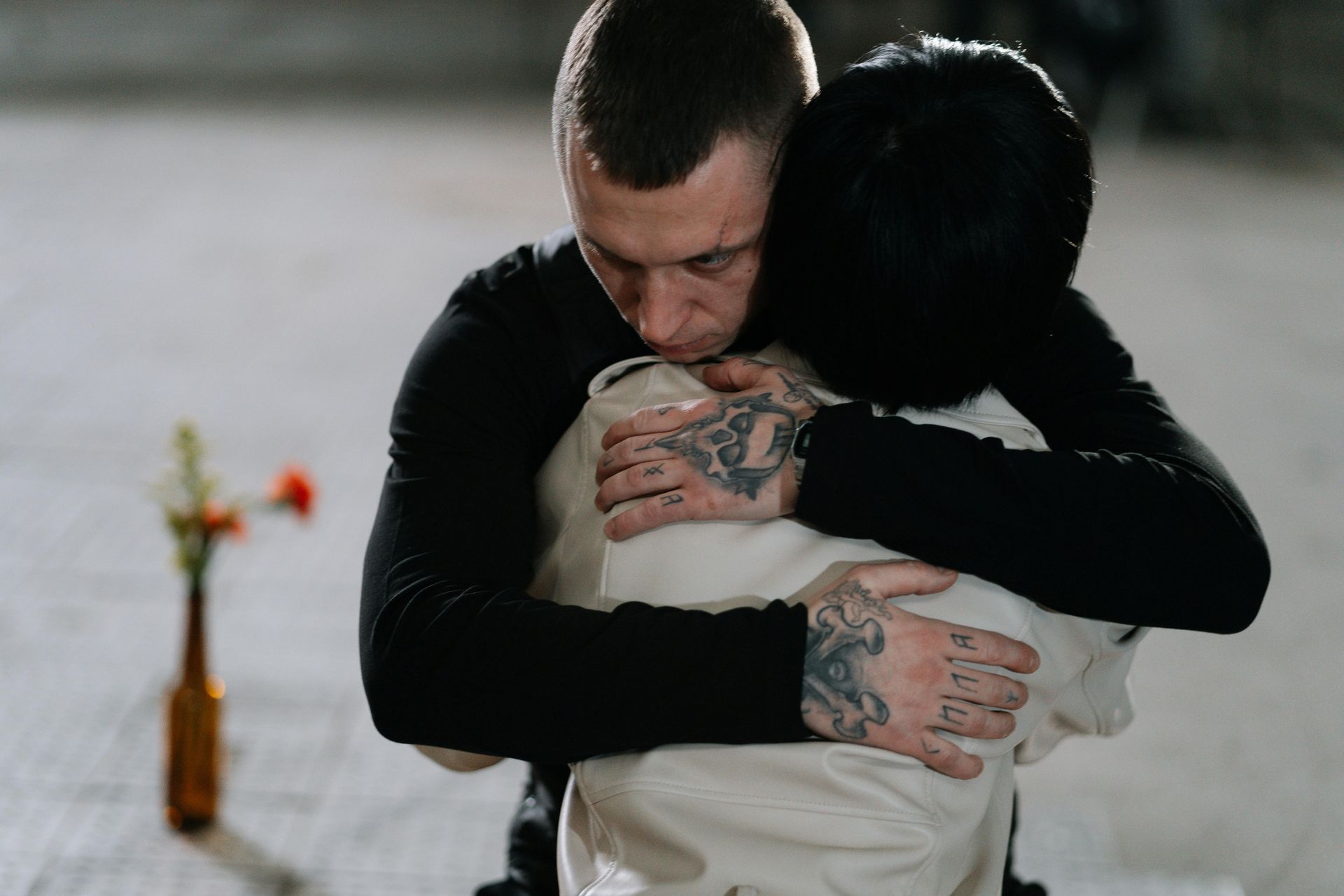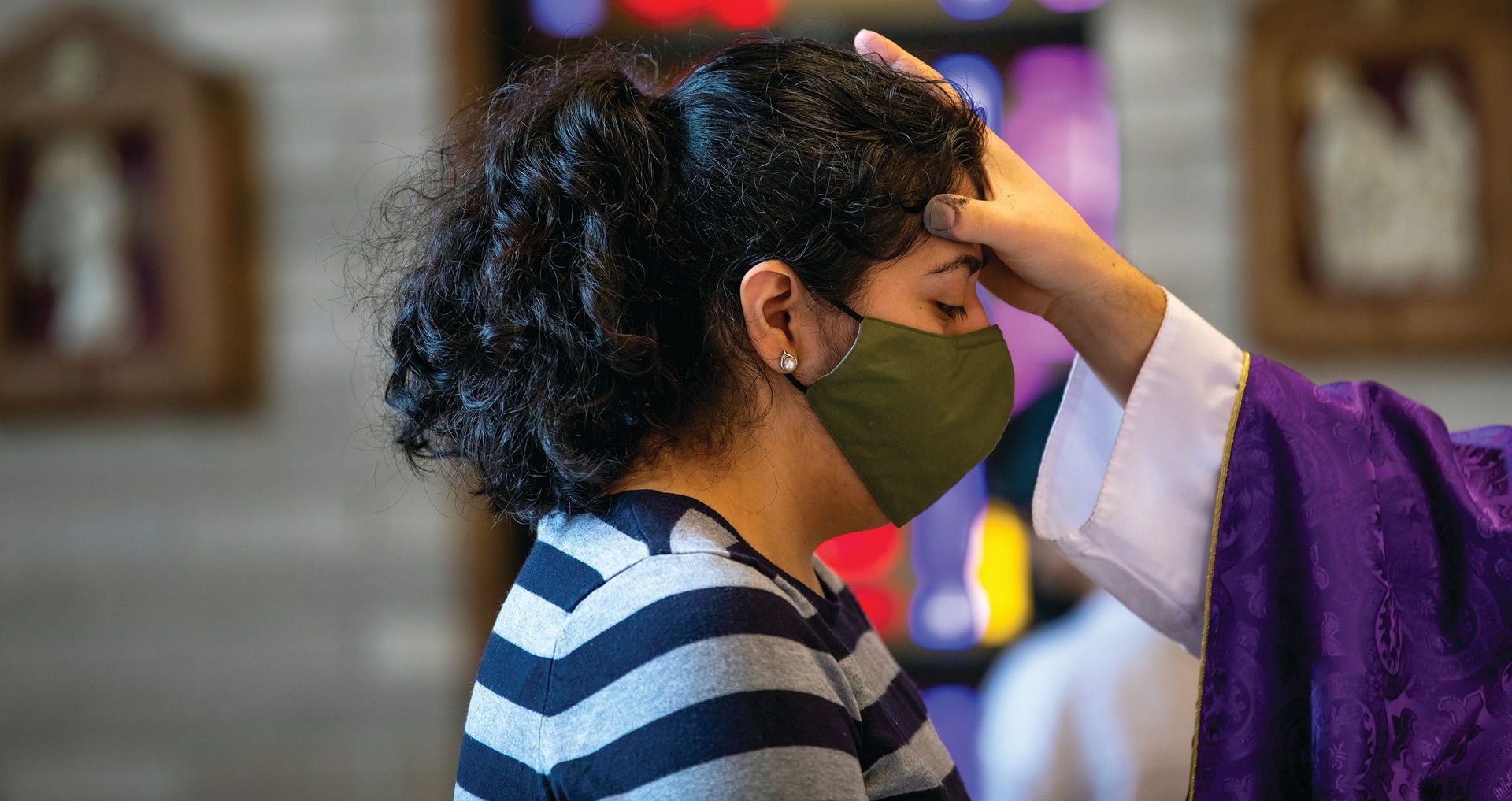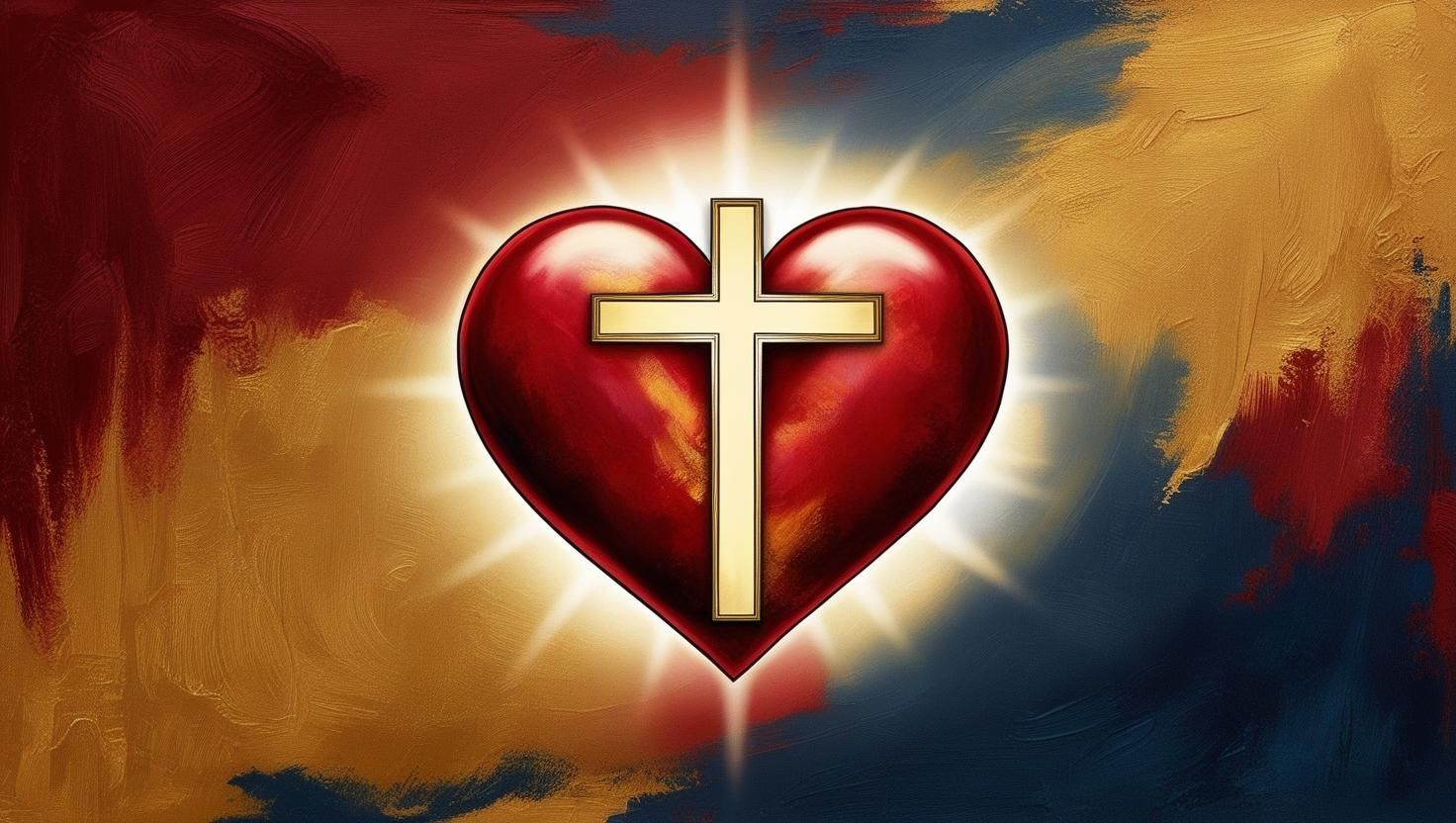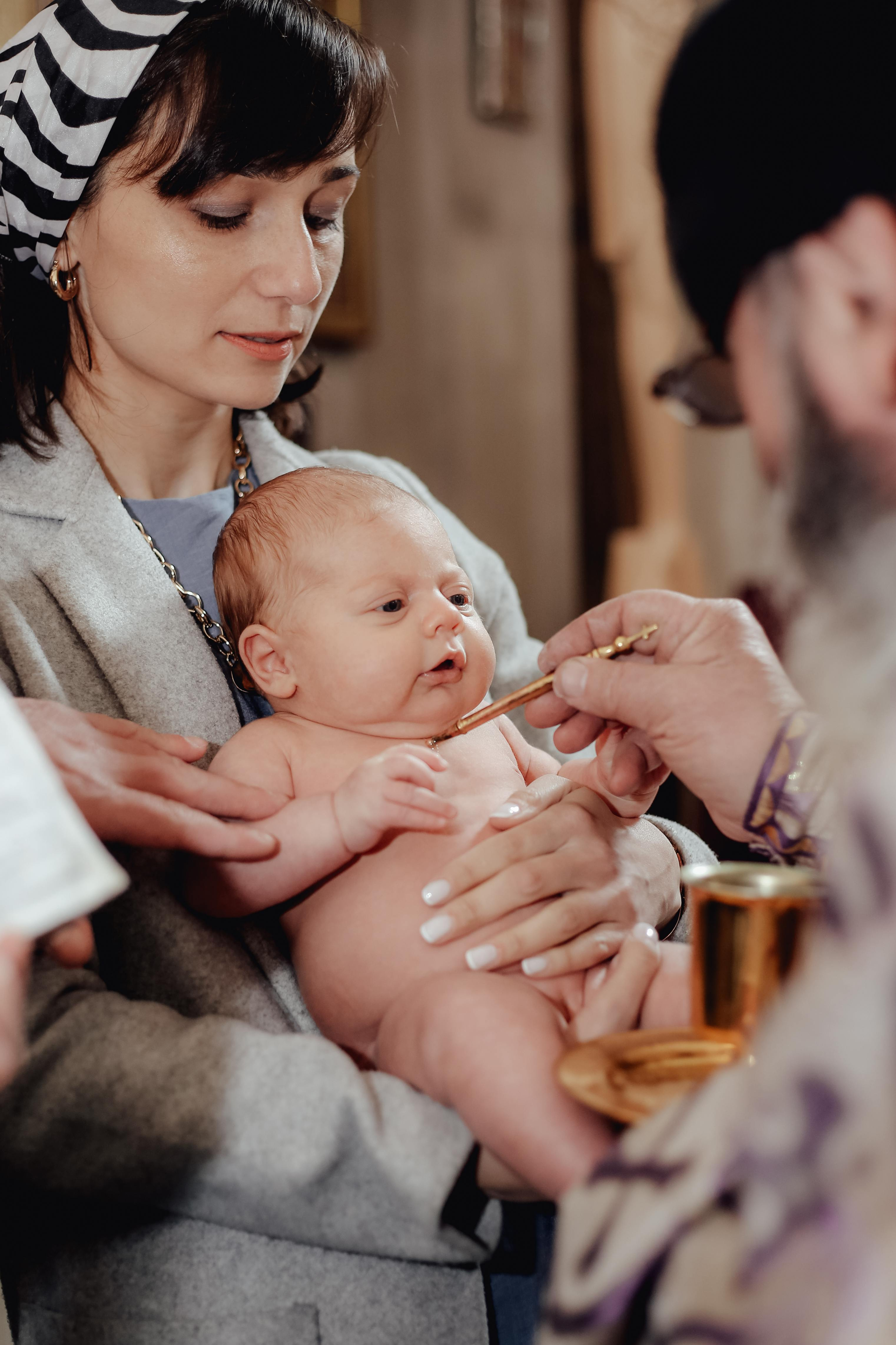P. El blog de Andrzej

We heard while reading the Passion of Christ, “Peter went out and wept bitterly” after his betrayal on Holy Thursday (Luke 22:62). I imagine Peter was very upset and would never forgive himself for the fact he denied his Master. Peter terribly failed as the chosen leader of the disciples of Jesus. He was supposed to give an example and be brave to be faithful to his promise to give his life for his Master and Lord. Perhaps Peter wondered how to make it up but it seems everything was over. He was losing his faith and any hope. And then, the miracle happened. Some women who closely followed Jesus came to the place where Jesus’ disciples were staying with surprising news. According to them the body of Jesus disappeared and he has been raised. The disciples did not believe them initially and disregarded their message. But Peter got up and ran to the tomb. He bent down and saw the burial cloths of Jesus alone, then he went home amazed (Luke 24:12). That moment at the empty tomb brought Peter hope that maybe not everything is over. It awakened his faith in the Resurrection of Jesus. It helped him to understand what Jesus was saying to him and his disciples about his mission and destiny. The word bent down in Hebrew has two meanings. It means a physical effort to bend down but also a profound reflection. I believe Peter stopped at the empty tomb of Jesus and deeply reflected on what happened between Jesus and him during the last few days. That moment of his reflection entirely changed his life and gave him hope to work out his broken relationship with his Master and Lord. Thus, he went home amazed. Dear Parishioners, I would like to take the opportunity of Easter Sunday to encourage you to have this kind of experience of Peter from today’s gospel. Please allow yourself to stop and bend down at the empty tomb of Jesus. May your bend down turn you away from your daily challenges and worries to hope and peace in Jesus Christ. May it change your life towards a close relationship with God and other people. Mayyour profound bend down bring your joy and true faith in the Resurrection of Jesus Christ our Lord. May you go home amazed (equally to Peter). On behalf of our Parish Staff and Pastoral Team,I wish you and your family members aHappy Easter. Fr. Andrzej

Today’s liturgy encourages us to carefully discern our choices and decisions we make, especially the most important ones that affect our entire life. The natural law reflected in God’s commandments and precepts are helpful to guide us in our discernment. Regardless if it is intentional or not, we are still able to choose evil instead of good because of our free will. Our well-formed conscious constantly reminds us about God’s Law when we choose evil or even apparent good instead of real one. A good example of making wrong choices in life is described by today’s gospel. It is about a woman who was caught on adultery and brought to Jesus for judgment. The only verdict for adultery according to the Law of Moses was death penalty (Deuteronomy 22:22). We can only imagine what was going on in the mind of the woman who was standing in front of Jesus at that moment. We do not have any evidence that she was an evil person or prostitute. Probably she just fell in love with a man and believed it was the true love she was missing. The woman, like all Israelites, knew the law and the consequences of adultery. She was aware of it and still continued her relationship with the man. She must strongly believe, he was the right man and their relationship will be eventually legalized. According to her, it was worthy to risk her life for the man and real relationship she finally found. When I read the story, I always wonder where the man who committed adultery with the women is. The law regarding adultery was equal to both, man and women. Both of them were guilty of death penalty (Deuteronomy 22:22). I imagine the woman standing in front of Jesus and facing the death penalty was wondering the same, where is my man, who promised to be with me for good and bad, life and death? Why he is not beside me now? We supposed to die together. She probably felt abandoned and betrayed. She realized only now, their love was not honest and true. She made wrong choices and decisions to stay with the man. We know the end of the story. Jesus who knew the hearts of people defended and protected the woman. Jesus wanted to give her another chance to make better choices in life. His heart was full of compassion, in contrary to the people in the crowd who wanted to stone her. I do not think today’s gospel was written only for people who struggle to find their true love or commit adultery. We all can benefit from this story. Many of us struggle to make right choices and decisions in life. We are tempted by disordered attachments to go for an easier solution, and we are often pushed by difficult circumstances to choose apparent good instead of real one. Everything looks beautiful and perfect at the beginning but then, we end in misery and spiritual death. The Lenten Season encourages us to reflect upon and practice our discernment. Our choices and decisions we make must never contradict God’s Law. When we often pray and nourish our relationship with God, our discernment is likely sound. Then, it is easier to choose the real good instead of the apparent one in our life. "You cannot make progress without making right decisions." (Jim Rohn) Fr. Andrzej

The Sacrament of Reconciliation is an essential element of the Lenten season. We are all encouraged to confess our sins, to make a resolution to sin no more, and to forgive those who hurt us. This unique sacrament is often called the Sacrament of Penance, Repentance or Conversion. In fact, we need all these elements to truthfully celebrate the Sacrament of Reconciliation and make it real in our life. Today’s liturgical readings encourage us to appreciate and embrace the Sacrament of Reconciliation as a part of preparation for Paschal Triduum and Easter season. The first reading is about Israel, the Chosen Nation, who travels through the desert to the Promised Land. After forty years of wondering in the wilderness God spoke to Joshua who led the Nation after Moses, “Today I have removed the reproach of Egypt from you…” (Joshua 5:9). God encouraged Israel to end their time of shame and disgrace from their enslavement in Egypt, and to make a new beginning for them and their children. I wonder why it took forty long years for the people of Isreal to rise above their times of slavery in Egypt. Similarly, the gospel parable brings an image of the Prodigal Son, who hesitated to return home even when he lost everything and suffered starvation. What took him so long to realize his wrongdoings, accept who he is and where he belongs? These two readings are good images of what the Sacrament of Reconciliation is and what we go through to realize our wrongdoings and our attachment to sin. Going to the Sacrament of Confession is like leaving the slavery of Egypt to become totally free. It is like making a decision to return home, to our loving Father, who is constantly waiting for me. It takes an effort and perhaps courage to realize our sinfulness and to confess our sins, but the result is great and rewarding. The Sacrament of Reconciliation is complete when it becomes a moment of true conversion from evil to good. The word conversion in Greek is describe in two words. Metanoia stands for repentance, and Epistrophe, which means a turning point or changing mind. We are supposed to change our thinking, from negative to positive or from sinful to good and virtuous, when we decide to go to the Sacrament of Confession. We confess our sins and we make a decision to sin no more. But we struggle to do so, because we like our sins and we are attached to our old sinful ways. We are very similar to Israel from today’s first reading, who left Egypt but mentally was still in slavery for many years. We are also similar to the Prodigal Son who was challenged and suffered starvation but still hesitated to return home to his loving father. The Sacrament of Reconciliation can transform our life forever when we truthfully decide to turn away from evil and offer ourselves to God totally without any condition. There are many occasions to receive the Sacrament of Confession during Lent at St. Martin of Tours. We scheduled two reconciliation services with a few priests available on April 2 @6 pm and April 12 @10 am. We will continue to offer the regular dates and time for confessions on Monday during Adoration at 6 pm, Saturday at 3 pm and First Friday after Mass at 8.30 am. Hopefully everyone will find a good occasion and willingness to receive and celebrate this wonderful Sacrament during Lenten Season. Fr. Andrzej

Reflecting on the image of God could be one of the elements of our Lenten journey. The image of God that we created in our heart is vital to all of us. It determines our relationship with God and how we pray. Today’s gospel on the 3rd Sunday of Lent, encourages us to ask a question about our personal image of God. “Who is God to me and what is my relationship with God?” The people of the Old Testament believed God to be a strict judge who watches people all the time. He rewards them for good and punishes them for evil deeds. The image of God was quite negative. According to the Old Testament, God followed the mentality, “life for life, eye for eye, tooth for tooth, hand for hand, and foot for foot" (Deuteronomy 19:21). Furthermore, the Old Testament approach to the image of God was that every sickness, poverty, or childlessness were signs of the absence of God’s grace due to human sins. The New Testament brings us a more positive image of God. According to Jesus, God is like a loving parent who loves his children unconditionally even when they fail. God is like a Loving Father, who waits for his prodigal son and welcomes him home without a doubt and without condition. Jesus called God “Abba” (Daddy) when he taught his disciples how to pray the “Our Father”. God is compared to the Good Shepherd, who finds his lost sheep. Similarly, God is compared to a Woman, who rejoices when she finds her lost coin. The New Testament offers us an image of God which is positive and encouraging. In today’s gospel Jesus was confronted with two disasters in Israel. People who questioned him believed that those who were killed by Pilate and those who died during an accident in Siloam were punished by God for their sins. Jesus contradicted their belief with an image of God who is just, merciful, and loving. Jesus tells a parable about a gardener and fig tree as an answer to the people who doubted God’s unconditional love. God was compared to a hard-working gardener, who takes care of a tree even if the tree is fruitless for years. According to this parable, God loves all people regardless of their effort and good deeds. God never gives up on people. The Lenten season encourages us to reflect on our image of God. This is a good opportunity to think about the image of God we inherited from our parents and teachers in our childhood. Many of us were taught that God follows the Old Testament mentality of “eye for eye, tooth for tooth.” I know people who are afraid of God. This kind of image does not foster a close relationship with God, nor does it help us to pray. Perhaps our personal image of God has changed through the years, and we are not aware of it. Even if we believe in an image of God who is loving like a good parent, we can still have doubts. Let today’s gospel and our personal encounter with God during our Lenten journey dissolve our doubt and encourage us to trust in God completely. Fr. Andrzej

The Lenten season is a blessed time during which we reflect and pray over the passion and death of our Lord, Jesus Christ. It is a unique time in the liturgical year which encourages us to slow down and make a spiritual effort to fast, pray, and help others. This makes sense when we grow and make progress in our spiritual life at the same time. It makes even more sense when we experience positive change moving away from evil to good. When we understand and take the Lenten season sincerely, it has a transforming effect on/in us. Accordingly, this positive change is necessary to truthfully experience the Risen Lord during Easter. It is providential we reflect on the Transfiguration this Second Sunday of Lent. Transfiguration comes from the Greek word metamórfosi, which means change. In the gospel today Jesus went up to Mount Tabor and was transfigured before his disciples. His body and clothes were totally transformed, “his face changed in appearance and his clothing became dazzling white” (Luke 9:29). Today’s reading illustrates what Lent is about. Our effort like climbing a mount or even hill will be rewarded at the peak when we experience the Risen Lord. Additionally, transfiguration reminds us of our ultimate destination in heaven. Our body also will be transformed in heaven and become like the body of Jesus on Mount Tabor. There are two great prophets who were present during the vision of the transfiguration, Moses and Elijah. Both of them spent their entire lives in the desert and were well known as prophets of the desert. They remind us we need a desert, detachment from our busy life, reflection, and prayer during Lent. We need to find a desert, special place and time for God, during our journey of Lent. This kind of personal desert makes our effort to grow spiritually more effective. Perhaps you noticed the theme in our church during Lent is about desert. There are not flowers and splendid decoration on the sanctuary. Also, there is no water in the baptismal font to remind us the necessity of a desert place during Lent. Lastly, our spiritual effort and close relationship with God are very attractive. When we take it seriously and our effort becomes a habit of daily routine, we want to remain with God forever. At the end of the Transfiguration Peter suggested building tents to prolong his experience of the desert and the vision forever. He loved that place and moment. “Master, it is good that we are here; let us make three tents, one for you, one for Moses, and one for Elijah.” (Luke 9:33). Contrary to his offer Jesus asked his disciples to return to the town to meet the people. It is a good reminder and encouragement for us that our spiritual effort during Lent must be rooted in our daily realities. Whatever we decide to practice and offer during Lent, longer and more effective prayer, fasting or alms giving, our effort must be practical and include the needs of our neighbor. Our spiritual growth makes sense if it brings us closer to God and people. Let us pray for each other to have a transforming experience during this blessed season of Lent. Fr. Andrzej

Last Wednesday we began the Lenten Season. We blessed and distributed ashes to everyone who participated in the Ash Wednesday liturgy. This ancient ritual of distribution of ashes with the blessing, “Remember that you are dust, and to dust you shall return,” has a special and profound meaning for us. Unfortunately, many Catholics do not like Lent and misunderstand the symbolism of distribution of ashes. Lent and ashes carry negative meaning of repentance, sacrifice and conversion for them. As a matter of fact, this profound ritual of distribution of ashes has a positive and very encouraging meaning. These words of blessing, “Remember that you are dust, and to dust you shall return,” were taken from the Book of Genesis (3:19). When the first humans, Adam and Eve were leaving the Garden of Eden after committing the original sin, God gave them a message of hope. God reminded them that their dignity was created in His image and likeness. They were created in the Garden of Eden, from the soil (dust) of Paradise, and that Eden was created for them. The Garden of Eden, the heavenly home is their destiny. At the same time, God promised them to return to their place where they were born and meant to be, to the land (dust) where they came from. Whatever happens outside of Eden, God will await and make an effort to bring them back home. This is good news! A great promise was offered to the first humans but also to all of us. And, it is not a coincidence that the liturgy of Ash Wednesday brings it back at the beginning of Lent. If we understand these words of God to the first humans, we will understand the true meaning of Lent. “Remember that you are dust, and to dust you shall return,” are key words of Lent and perhaps the most beautiful words spoken by God to the human beings in the Bible. These words of God’s promise encourage us to begin Lent with enthusiasm and willingness to help God to bring us back to our heavenly home. We keep in mind theses words, when we make our resolutions to alms giving, fasting and prayer during this blessed time of Lent. May Lent become a meaningful journey with God for each of us individually and as a religious community of St. Martin of Tours. At our parish, we will have many prayer services and spiritual events to help us to go through this blessed time meaningfully. I will just mention a few of the upcoming events in Lent. Traditional Stations of the Cross will be led by various groups (including youth and children) on Fridays at 6pm. Lenten recollection weekend is scheduled on April 5-6. Sacrament of Reconciliation is scheduled twice, on April 2 at 6pm and April 12 at 10am. Hopefully everybody will have an opportunity to confess their sins before the celebration of Easter. The Pascal Triduum (Holy Thursday, Good Friday, Holy Saturday and Ester Sunday) culminate our Lenten Journey. It will be solemnly celebrated at our parish in similar form and time as in previous years. Additionally, we have a few formation and social events during Lent and Holy Week. Everyone is invited to join the adult formation sessions organized by Christian Women and Men of Christ. There will be a traditional brunch on Palm Sunday. It is a great opportunity to invite whole families to begin the Holy Week with prayer and fellowship. There are many other ministries, prayer and social events during Lent. Please see the parish bulletin, TVs, and website for more information and details. Have a blessed and meaningful journey of Lent. Fr. Andrzej

Today’s gospel contains three guidelines that Jesus offered to his disciples. These wise and practical rules are helpful to all followers of Jesus but especially to those who minster to others. The first rule is about listening and being present to a person in need. “Can a blind person guide a blind person? Will not both fall into a pit?” (Luke 6:39) An ability to listen is an essential element of ministry. Thus, Luke compares a person who is not attentive and cannot listen to a person in need to a blind guide. Also, today’s first reading speaks about listening more explicitly. According to Sirach, we must never judge a person by appearance and first impression. Instead, we must listen attentively to his or her heart first (Sirach 27:6). Indeed, a good minister never jumps to conclusion without knowing the heart of a person entrusted to him. Listening is not an easy task. There are many people who have difficulties to speak their heart. They usually need time to trust, and to open their broken heart and speak out their problems. The second rule closely relates to the first one. “Why do you notice the splinter in your brother’s eye, but do not perceive the wooden beam in your own? (…) Remove the wooden beam from your eye first, then you will see clearly” (Luke 6:41-42). Jesus encourages his disciples to take care of themselves first before they go serve others. And it is not just about health, skills and another kind of training. These elements are vital and we must take care of them too, but the spiritual preparation is more important and essential for ministry. We have no right to go and minister to others without making an effort regarding our own growth and spiritual well-being. It is understood that we are never perfect and our spiritual growth is life-long ongoing process, but our effort gives us a permission and confidence to minister to others. If we minister without our spiritual effort and growth, we are similar to a person who has a “wooden beam in his eye and he cannot see clearly.” We cannot have a proper disposition and discernment to serve. We cannot see and listen to someone’s heart attentively when our heart is preoccupated with our own disordered desires and sin. Our heart is blind and deaf without a spiritual effort. The third rule speaks about good results, good fruits in our ministry and life. “A good tree does not bear rotten fruit, nor does a rotten tree bear good fruit. For every tree is known by its own fruit” (Luke 6:43-44). This third wisdom of Jesus is often misunderstood. It does not mean that everything wrong and even evil we experience in our life is our fault. Unfortunately, people frequently blame themselves for every evil and live in guilt for years, for example for accidents, sickness, and children who left their religion and lost faith. In fact, the third rule does not speak about it at all. The key element of the third guidance lies in the third sentence: “A good person out of the store of goodness in his heart produces good, but an evil person out of a store of evil produces evil” (Luke 6:45). According to Luke, everything happens in our heart. Thus, it is up to us how we take care of our heart. We must protect our heart from evil and form to produce good. The third rule warns us not to contaminate our heart with unnecessary worries, disordered attachments and evil thoughts. These will produce evil fruit in our life and distract our ministry. The third rule encourages us to invite God into our heart and to strengthen our relationship with God. Prayer and spiritual exercises help in this responsibility. Every encounter with God produces a good fruit for us and people we meet in our ministry. Fr. Andrzej

The most common topic people come to talk with me about is their faith. I am glad about it. They often ask me questions during different parts of their faith journey. They ask, “Do I still have faith, or have I lost it?” “Is it ok to feel the absence of God in their life for a long time?” and “Is faith substantial for true happiness?”. These are important questions to answer. However these questions must be answered personally by each of us, and nobody else can judge our faith or happiness. It is a delicate matter and personal choice. We often think true believers go to church regularly and call themselves Catholics. But this conclusion does not necessarily reflect truth. We must look into our heart and reflect upon where our heart truly belongs. The Bible talks about two main states of heart. We either make God the center of our life or we do not. Choosing to make our heart close to God will lead us to true happiness. Making any other choices may satisfy us temporarily, but it will lead in the end leave us disappointed and unhappy. This was clear to the prophet, Jeremiah, who is the author of today’s first reading. Jeremiah describes the two contrary states of a human heart. The first state of heart belongs to a person who trusts just in a human effort and totally hopes in flesh. I know, this is an old language of the Bible that speaks about a human being who believes only in material things and does not really care about God and His commandments. This kind of person build his life without God, and often does it unintentionally. There are many things in his life which are more important than God. Jeremiah compares that person to “a barren bush in the desert…who stands in a lava waste, a salt and empty earth” (Jer 17:6). It is a dramatic and sad image of a state of heart of a person whose heart is far way from God. The second image of Jeremiah, contrary to the first, is about a state of heart closed to God. Jeremiah describes a person whose heart hopes and desires God all the time. That person is like “a tree planted beside the waters that stretches out its roots to the stream…In a year of draught it shows no distress, but still bears fruit” (Jer 17:8). This is a delightful and encouraging image of a person who trusts in the Lord and his heart totally belongs to God. It does not mean that everything is wonderful and there are not difficulties or challenges in that person’s life. We often feel close to God but still experience suffering, trials and other problems. Perhaps we even feel like the Biblical Job who lost everything and everyone in his life. Despite his suffering and loss, he kept his faith in God and kept his peace of heart. Personally, I went through both states of heart in my life. I remember time I trusted too much in earthly matters and just in myself. My choices and desires took me far away from God. Everything, not just my relationship with God, was falling apart including my relationship with other people. I felt like “a barren bush in the desert.” But there also was time I totally trusted in God and I desire to do God’s will in my life. Perhaps I was like “a tree planted beside the waters” and felt strongly God’s presence beside me. Even when I had to face trials and challenges or loss, I knew I have true peace deep in my heart. To conclude, there is a test where our heart belongs. There are questions that might help us to recognize our present state of our heart. How do I react on the difficulties and defeats in my life? How do I relate to God when I suffer and go through trails? Do I search for God and feel God’s presence in difficult times of my life? Please find some time to reflect upon your heart frequently. It is a wonderful prayer. I would like to end my reflection with a meaningful quote of St. Augustin who often looked into his heart to find God there. “Where your pleasure is, there is your treasure; where your treasure, there your heart; where your heart, there your happiness.” Fr. Andrzej

“Put out into the deep and let down your nets for a catch” is a quote from Pope John Paul II that he used in a speech at World Youth Day in Czestochowa, Poland, in August 1991. The quote is based on Jesus' call of the first disciples in Luke 5. “Put out into the dep…” became a theme of the World Youth Day, which I experienced as a young man in Poland. I will never forget the enthusiasm and zeal of the Pope who preached to the thousands young men and women who gathered around the shrine of Black Madonna in Czestochowa. The Pope encouraged the youth not to be satisfied with short-sightedness and shallow life but instead to “put out into the deep” when they plan and dream their future life. That experience with Saint John Paul II, and other youth who came to Poland from different part of the world, significantly impacted my faith and my vocation. It changed my life forever. Today’s gospel from Luke 5 is basically a vocation story of Peter and his companions, who became the first disciples of Jesus. Jesus’ invitation to Peter was preceded with a great miracle of catching huge number of fish. According to John, who describes the same miracle in his gospel, there were 153 large fish in the two boats (John 21:11). Peter and his companions were stunned. It was not the first time Jesus invited Peter to follow him as his disciple, but Peter always hesitated and refused. Peter’s usual excuses were his limitations and sinful life as well as his business. All the prophets and leaders in the bible used the same excuses to hesitate on God’s call. Jesus knew it very well. This time Jesus used the language and mentality of a fisherman when he called Peter. Therefore, Jesus succeeded when he compared the call to his discipleship to fishing, “Do not be afraid; from now on you will be catching people” (Luke 5:10). Peter left everything behind, including his own comfort zone and tainted life, and became his close disciple. The fact that Jesus convinced Peter to follow him and leave the two boats full of fish behind, it is another miracle that Jesus performed on the same day, I believe. I imagine, the gospel assigned for today is meaningful and profound for all people not just for youth or fishermen. We are all reminded and call to leave our tainted life and comfort zone, and “put out into the deep” of our faith and relationship with God. Our life is beautiful when we aim high, and we always strive to grow. I remember and when I reflect over the days God has called me for different kinds of ministries or even to perform a small task, a good deed, I hesitated to say yes, and often I used a similar excuse as Peter. Perhaps all of us can relate to the story and call of Peter from today’s gospel. We have our own stories, calls and our own relationship with God. Nevertheless, we are encouraged to think positively and continue our good work even when we cannot see an appreciation for it. We must never be afraid or discouraged to do good and perform our ministry God entrusted to us. God did not guarantee us prosperity or an appreciation from people for our ministry and honest life. God promised us to be with us always, even when we go through trial and difficulties. Fr. Andrzej

Today’s feast has a long and remarkable history and origin. The feast dates back to the 4th century in the East. In 542, Emperor Justinian ordered the feast to be celebrated in Constantinople to give thanks for the end of a plague. The feast spread to Rome in the middle of the 5th century and was approved as a universal feast. The feast commemorates the event when Mary and Joseph took Jesus to offer him to God according to the Law of Moses. As it is written in the Book of Exodus, all the firstborn humans and animals had to be offered to God (Exod 13:1). It was to remember the fact God slew the firstborn of the Egyptians to save the firstborn of the Israelites and to free them from slavery. As a consequence, the young parents had to leave their first children in the temple for service and offered firstborn animals as a sacrifice to the Lord. When the tribe of Levi took over the service of the Lord, the Israelites could redeem their firstborn from the service by paying tithings and offering animals instead. Today’s feast was previously called, the Purification of Mary. According to the Book of Leviticus, a woman had to be purified after forty days of giving birth. Thus, the feast was placed forty days after Christmas in the liturgical calendar. A woman could purify herself by offering to the priest a lamb and a young pigeon. If she cannot afford a lamb, two young pigeons or doves could be offered (Lev 12:6-8). The conception and birth of Jesus did not defile Mary as other women. But to show the obedience to the Law of the Lord, Mary and Joseph submitted themselves to the rite of purification. They had nothing to cleanse themselves from, yet they did it to obey and revere God. Today’s feast was also called Candlemas in the past. According to the tradition, this feast culminates the long celebration of Epiphany, revelation of Jesus as the Messiah and Son of God to the World. Jesus brought light to the people who lived in darkness. A lit candle symbolizes the presence of Jesus Christ among us. We light candles in a church, at the altar, during sacraments and when we read a bible to realize Jesus is with us. According to the author of the Golden Legend there are three parts in every candle, the wax, wick and fire. The wax is a sign of Jesus’ body. The wick symbolizes Jesus’s soul, which is hidden in his body. And the fire or light stands for Jesus’ divinity. Thus, there was a tradition in many churches to bring in a solemn procession and bless candles during today’s feast. This profound and meaningful feast of the Presentation of the Lord was chosen by the Pope Saint John Paul II as a day of prayer for women and men in consecrated life in 1997. Today it is a good opportunity to pray for those religious who thought and form us in schools and churches, and inspired us to be good Catholics. Let’s also remember those religious Sisters and Brothers who have been working at St. Martin of Tours. We are grateful for their ministry. Fr. Andrzej




